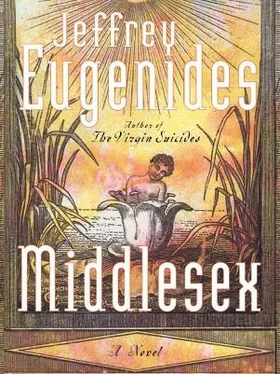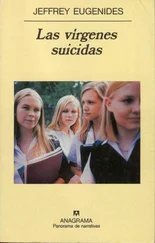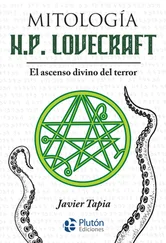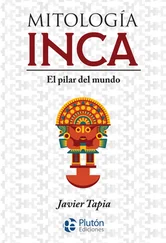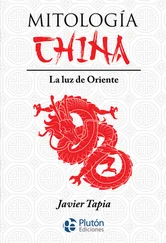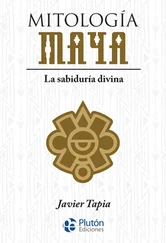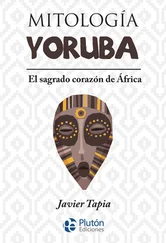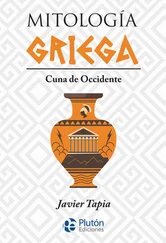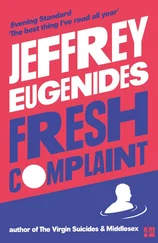I had my own resistance. “Why does he have to do a psychological evaluation?” I asked. “It’s not like I’m crazy.”
“The doctor said it was routine.”
“But why?”
With this question I had hit upon the crux of the matter. My mother has since told me that she intuited the real reason for the psychological assessment, but chose not to dwell on it. Or, rather, didn’t choose. Let Milton choose for her. Milton preferred to treat the problem pragmatically. There was no sense in worrying about a psychological assessment that could only confirm what was obvious: that I was a normal, well-adjusted girl. “He probably bills the insurance extra for the psychological stuff,” Milton said. “Sorry, Cal, but you’ll have to put up with it. Maybe he can cure your neuroses. Got any neuroses? Now’s your time to let ’em out.” He put his arms around me, squeezed hard, and roughly kissed the side of my head.
Milton was so convinced that everything was going to be okay that on Tuesday morning he flew down to Florida on business. “No sense cooling my heels in this hotel,” he told us.
“You just want to get out of this pit,” I said.
“I’ll make it up to you. Why don’t you and your mother go out for a fancy dinner tonight. Anyplace you want. We’re saving a couple bucks on this room, so you gals can splurge. Why don’t you take Callie to Delmonico’s, Tess.”
“What’s Delmonico’s?” I asked.
“It’s a steak joint.”
“I want lobster. And baked Alaska,” I said.
“Baked Alaska! Maybe they have that, too.”
Milton left, and my mother and I tried to spend his money. We went shopping at Bloomingdale’s. We had high tea at the Plaza. We never made it to Delmonico’s, preferring a moderately priced Italian restaurant near the Lochmoor, where we felt more comfortable. We ate there every night, doing our best to pretend we were on a real trip, a vacation. Tessie drank more wine than usual and got tipsy, and when she went to the bathroom I drank her wine myself.
Normally the most expressive thing about my mother’s face was the gap between her front teeth. When she was listening to me, Tessie’s tongue often pressed against that divot, that gate. This was the signal of her attention. My mother always paid great attention to whatever I said. And if I told her something funny, then her tongue dropped away, her head fell back, her mouth opened wide, and there were her front teeth, riven and ascendant.
Every night at the Italian restaurant I tried to make this happen.
In the mornings, Tessie took me to the Clinic for my appointments.
“What are your hobbies, Callie?”
“Hobbies?”
“Is there anything you especially like to do?”
“I’m not really a hobby-type person.”
“What about sports? Do you like any sports?”
“Does Ping-Pong count?”
“I’ll put it down.” Luce smiled from behind his desk. I was on the Le Corbusier daybed across the room, lounging on the cowhide.
“What about boys?”
“What about them?”
“Is there a boy at school you like?”
“I guess you’ve never been to my school, Doctor.”
He checked his file. “Oh, it’s a girls’ school, isn’t it?”
“Yup.”
“Are you sexually attracted to girls?” Luce said this quickly. It was like a tap from a rubber hammer. But I stifled my reflex.
He put down his pen and knit his fingers together. He leaned forward and spoke softly. “I want you to know that this is all between us, Callie. I’m not going to tell your parents anything that you tell me here.”
I was torn. Luce in his leather chair, with his longish hair and ankle boots, was the kind of adult a kid might open up to. He was as old as my father but in league with the younger generation. I longed to tell him about the Object. I longed to tell somebody, anybody. My feelings for her were still so strong they rushed up my throat. But I held them back, wary. I didn’t believe this was all private.
“Your mother says you have a close relationship with a friend of yours,” Luce began again. He said the Object’s name. “Do you feel sexually attracted to her? Or have you had sexual relations with her?”
“We’re just friends,” I insisted, a little too loudly. I tried again in a quieter voice. “She’s my best friend.” In response Luce’s right eyebrow rose from behind his glasses. It came out of hiding as though it, too, wanted to get a good look at me. And then I found a way out:
“I had sex with her brother,” I confessed. “He’s a junior.”
Again Luce showed neither surprise, disapproval, or interest. He made a note on his pad, nodding once. “And did you enjoy it?”
Here I could tell the truth. “It hurt,” I said. “Plus I was scared about getting pregnant.”
Luce smiled to himself, jotting in his notebook. “Not to worry,” he said.
That was how it went. Every day for an hour I sat in Luce’s office and talked about my life, my feelings, my likes and dislikes. Luce asked all kinds of questions. The answers I gave were sometimes not as important as the way I answered them. He watched my facial expressions; he noted my style of argument. Females tend to smile at their interlocutors more than males do. Females pause and look for signs of agreement before continuing. Males just look into the middle distance and hold forth. Women prefer the anecdotal, men the deductive. It was impossible to be in Luce’s line of work without falling back on such stereotypes. He knew their limitations. But they were clinically useful.
When I wasn’t being questioned about my life and feelings, I was writing about them. Most days I sat typing up what Luce called my “Psychological Narrative.” That early autobiography didn’t begin: “I was born twice.” Flashy, rhetorical openings were something I had to get the hang of. It started simply, with the words “My name is Calliope Stephanides. I am fourteen years old. Going on fifteen.” I began with the facts and followed them as long as I could.
Sing, Muse, how cunning Calliope wrote on that battered Smith Corona! Sing how the typewriter hummed and trembled at her psychiatric revelations! Sing of its two cartridges, one for typing and one for correcting, that so eloquently represented her predicament, poised between the print of genetics and the Wite-Out of surgery. Sing of the weird smell the typewriter gave off, like WD-40 and salami, and of the Day-Glo flower decal the last person who’d used it had applied, and of the broken F key, which stuck. On that newfangled but soon-to-be obsolete machine I wrote not so much like a kid from the Midwest as a minister’s daughter from Shropshire. I still have a copy of my psychological narrative somewhere. Luce published it in his collected works, omitting my name. “I would like to tell of my life,” it runs at one point, “and of the experiences that make myriad my joys and sorrows upon this planet we call Earth.” In describing my mother, I say, “Her beauty is the kind which seems to be thrown into relief by grief.” A few pages on there comes the subheading “Calumnies Caustic and Catty by Callie.” Half the time I wrote like bad George Eliot, the other half like bad Salinger. “If there’s one thing I hate it’s television.” Not true: I loved television! But on that Smith Corona I quickly discovered that telling the truth wasn’t nearly as much fun as making things up. I also knew that I was writing for an audience—Dr. Luce—and that if I seemed normal enough, he might send me back home. This explains the passages about my love of cats (“feline affection”), the pie recipes, and my deep feelings for nature.
Luce ate it all up. It’s true; I have to give credit where credit’s due. Luce was the first person to encourage my writing. Every night he read through what I had typed up during the day. He didn’t know, of course, that I was making up most of what I wrote, pretending to be the all-American daughter my parents wanted me to be. I fictionalized early “sex play” and later crushes on boys; I transferred my feeling for the Object onto Jerome and it was amazing how it worked: the tiniest bit of truth made credible the greatest lies.
Читать дальше
Конец ознакомительного отрывка
Купить книгу
